
Child-on-child sexual abuse, sometimes referred to by its acronym “COCSA” or “child sexual abuse”, happens when one child engages in sexual behavior that harms another child. This goes beyond age-appropriate curiosity—it violates boundaries and causes harm.
Harmful Behavior
It’s natural for kids to have questions about bodies and boundaries. But harmful sexual behavior often includes:
- Coercion or manipulation
- Secrecy or attempts to hide the behavior
- Repeated or escalating incidents
- Actions that make another child feel scared, confused, or unsafe
When these signs are present, it’s no longer curiosity; it’s a serious issue that needs professional attention.

Warning Signs to Watch For
If your child is acting out sexually, you may notice:
- Age-inappropriate sexual language or behavior
- Reenacting scenes from pornography or media
- Social withdrawal or isolation
- Difficulty following boundaries or respecting personal space
If your child may have been harmed, you might see:
- Sudden changes in mood or behavior
- Nightmares, anxiety, or fearfulness
- Avoiding certain people, places, or situations
- Regression in behavior (e.g., bedwetting, clinginess)
Recognizing these signs doesn’t mean you’ve done something wrong. It means you’re being a responsive, attentive parent, and you’re in a position to help your child get the support they need to heal.
A Father's Story of Sibling Sexual Abuse
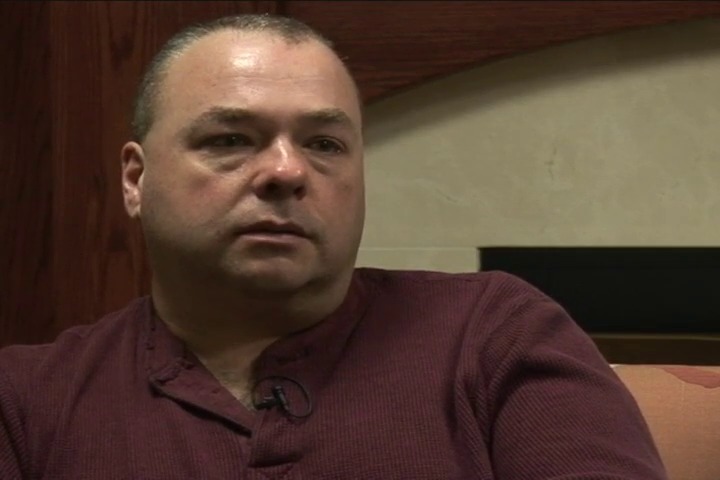
National Sexual Assault Hotline
If you are a victim of rape or sexual abuse and need assistance please call the National Sexual Assault Hotline at 800.656.HOPE (4673).
We're Here To Help. Recovery Is Possible.
Your teen can recover from sexual behavioral problems. Contact one of our trained representatives for a free, private consultation
Why Does Child Sexual Abuse Happen?
When a child engages in sexually harmful behavior, it’s easy to assume the worst. But most kids who act out aren’t trying to hurt others on purpose. They’re often struggling with unmet emotional needs, past experiences, or challenges they don’t yet have the tools to manage.
This behavior isn’t about malicious intent; it’s a sign that something deeper is going on.
What Might Be Behind the Behavior?
Many factors can contribute to a child acting out sexually, including:
- Past trauma or abuse
Some children who have experienced abuse may repeat behaviors they’ve seen or endured, but not all do. A history of trauma can increase risk, but it’s not the only explanation for harmful sexual behavior. - Exposure to pornography
Early or repeated exposure, especially to violent content, can distort a child’s understanding of boundaries and consent. - Emotional regulation struggles
Some kids act out when overwhelmed or disconnected and don’t know how to express it safely. - Difficulty with boundaries
Children who haven’t internalized healthy limits may not realize when they’re crossing a line. - Developmental or learning differences
Autism, ADHD, or cognitive delays can impact a child’s ability to read social cues or control impulses.
The Good News: Behavior Can Change
These behaviors are serious, but treatable. With the right support, your child can grow, learn empathy, and build safe, respectful relationships. Families can heal.
How This Affects Everyone
Child-on-child sexual abuse impacts far more than just the children directly involved—it affects the entire family.
For the child who acted out, there may be deep confusion, shame, or fear. Without the right support, those feelings can lead to isolation, denial, or worsening behavior. But with compassionate, specialized care, that child can begin to understand their actions, take accountability, and develop healthier patterns.
For the child who was harmed, the experience can lead to sadness, fear, difficulty trusting others, or even trauma responses. With early intervention and a safe, supportive environment, healing is possible, and recovery doesn’t have to happen alone.
Siblings may feel caught in the middle, unsure of what’s happening or how to respond. Parents often feel guilt, grief, or uncertainty about what to do next. These complex emotions are normal, but they don’t have to define your family’s story.
Addressing the behavior early, before shame takes root or patterns deepen, is one of the most important steps you can take. With the right help, your child can change. Your family can heal.
Hear From Our Experts: A Podcast for Parents
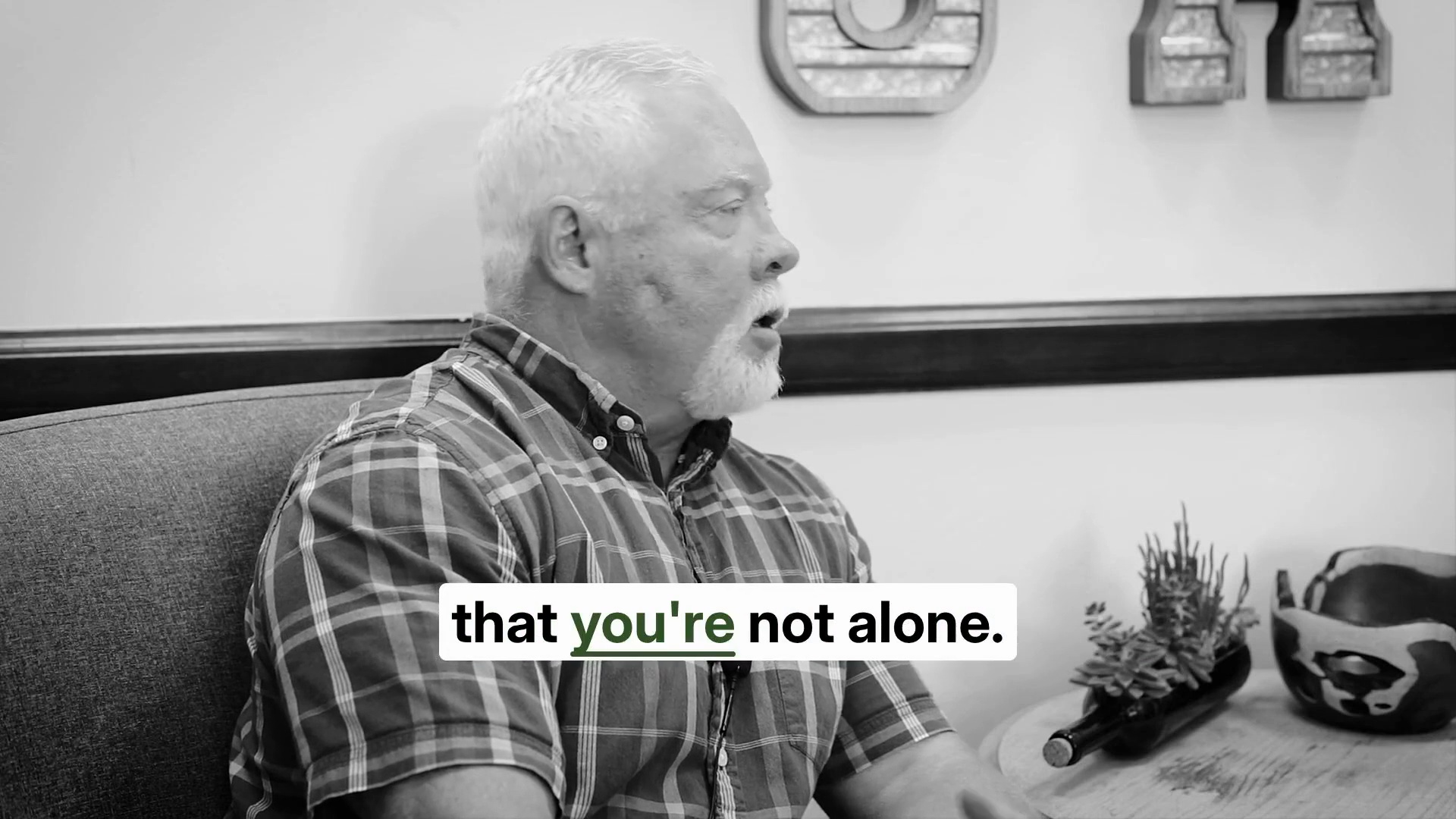
Hearing that your child has acted out sexually can be devastating. In this moment, it's easy to feel isolated, overwhelmed, and unsure of what to do next. But you're not alone, and you're not without options.
In this short clip, Oxbow Academy’s Executive Director, Shawn Brooks, and podcast host Tiffany Herlin, LCSW, talk about what parents need to hear in the very beginning of this journey. It’s a reminder that while this is incredibly painful, there is a path forward.
Explore the Full COCSA Podcast Series
Each episode of this series offers practical, compassionate guidance for parents navigating the complex realities of child-on-child sexual abuse.
Episode 1: What to Do When Your Teen Has Sexually Abused Another Child
In Episode 1, “What to Do When Your Teen Has Sexually Abused Another Child,” Tiffany Silva Herlin, LCSW, and Shawn Brooks, Executive Director of Oxbow Academy, offer compassionate guidance to parents facing child-on-child sexual abuse. They explain that this behavior is rarely accidental and often stems from deeper trauma and shame. The episode covers common warning signs, the emotional toll on parents, and the urgent need to prioritize the victim’s safety. Listeners are encouraged to take action before the teen turns 18, seek professional help, and implement safety measures at home—all while remembering they are not alone.
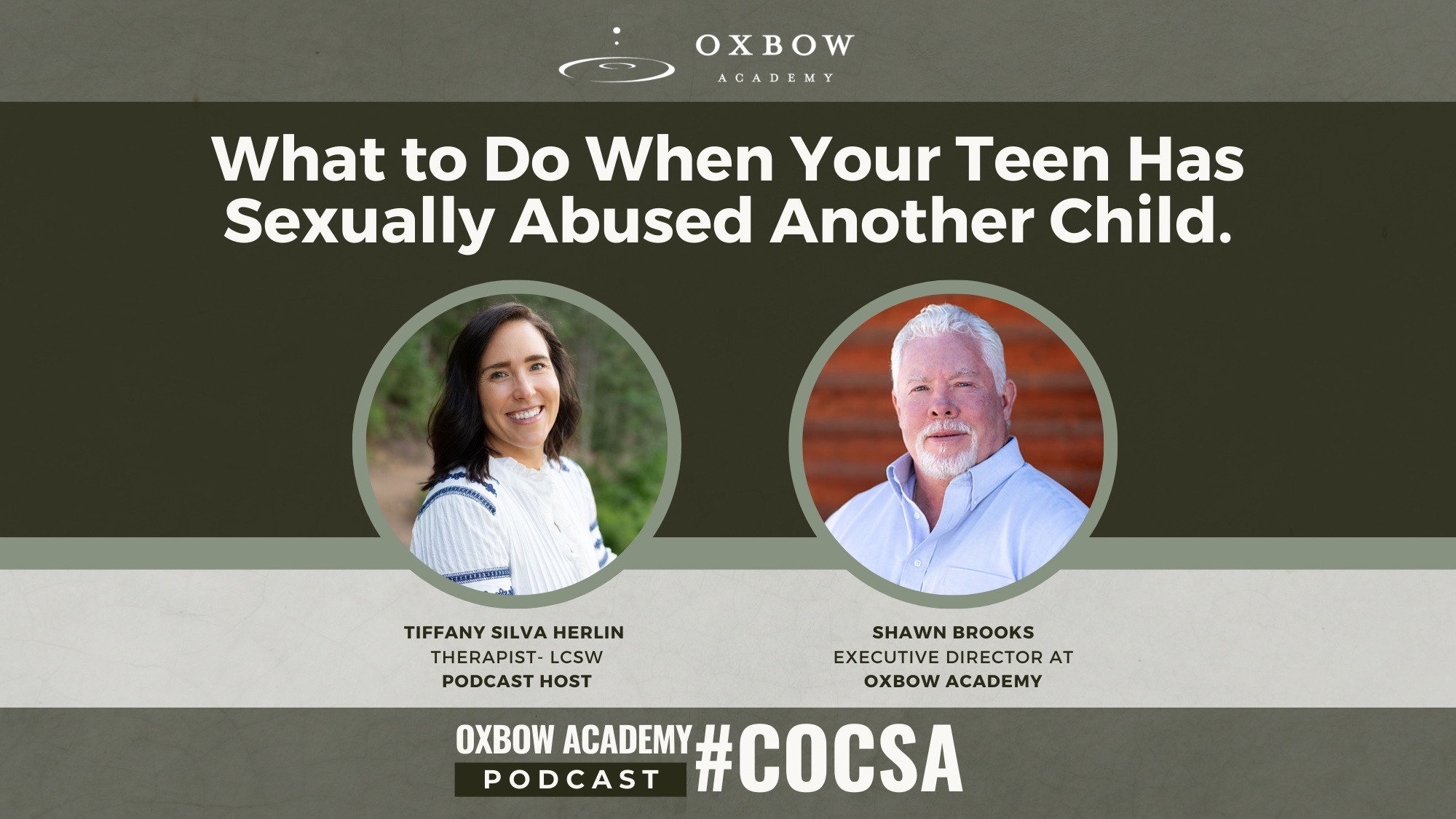
Episode 2: Why Is Your Teen Sexually Acting Out?
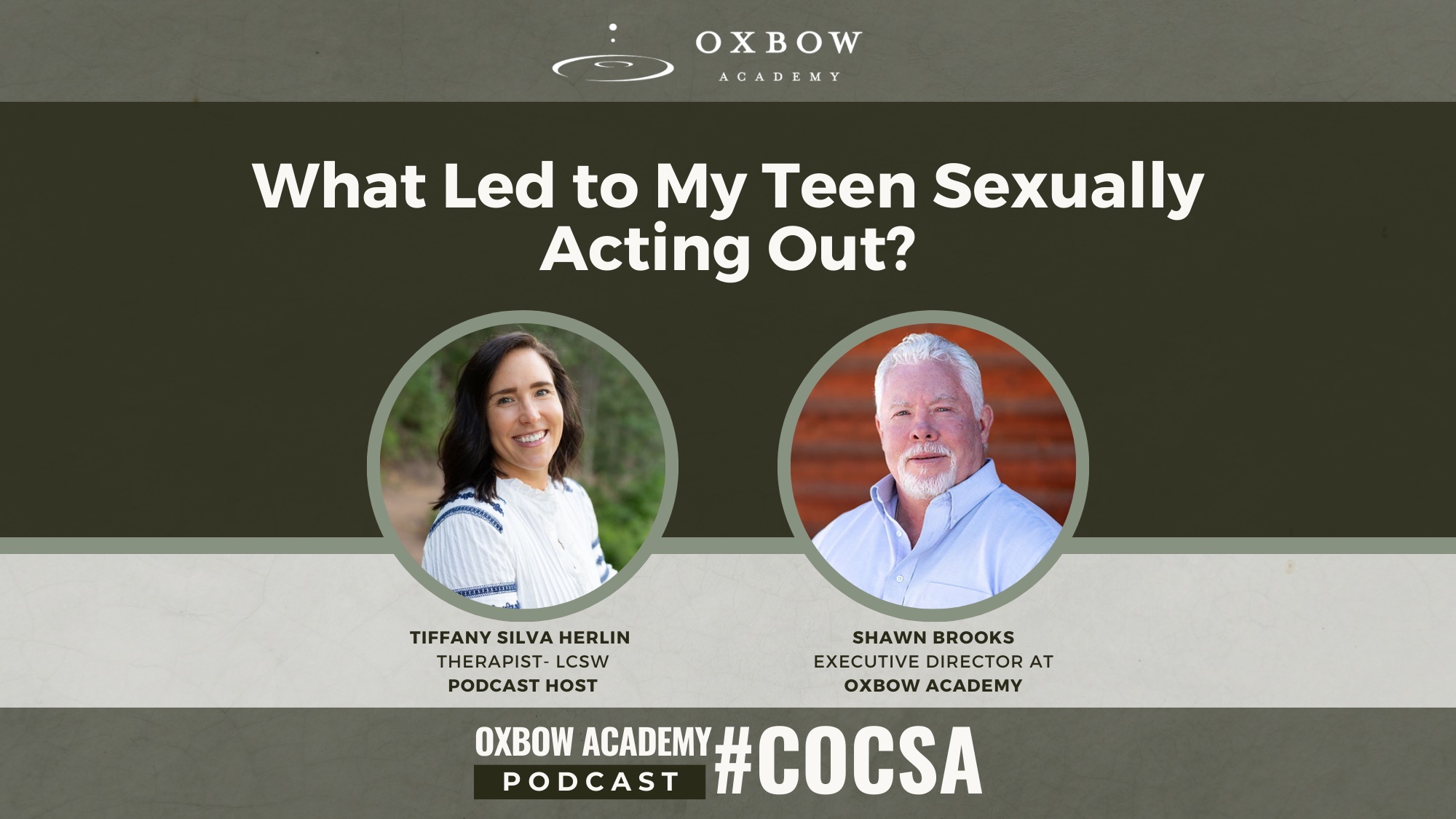
In Episode 2, “Why Is Your Teen Sexually Acting Out?” Tiffany Silva Herlin, LCSW, and Shawn Brooks of Oxbow Academy help parents understand the deeper roots of sexually inappropriate behavior in teens. They explore how trauma, early exposure to pornography, poor sexual education, and attachment issues can contribute to these behaviors, especially in neurodiverse teens. The episode also addresses the intense emotions parents face, the difference between love and trust, and the importance of allowing teens to experience accountability. Parents are encouraged to seek support for themselves and create open, shame-free conversations at home.
Episode 3: Reporting Child-on-Child & Sibling Sexual Abuse: What Parents Should Know
In Episode 3, “Reporting Child-on-Child & Sibling Sexual Abuse: What Parents Should Know,” Tiffany Silva Herlin, LCSW, and Shawn Brooks of Oxbow Academy walk parents through the difficult but important process of reporting abuse. They explain why involving professionals—lawyers, therapists, and CPS—is essential, and how early reporting can lead to better outcomes for both the victim and the teen who acted out. The episode highlights the risks of secrecy, the legal and emotional complexities of disclosure, and the importance of early intervention. Above all, it offers hope, emphasizing that adolescents can heal and change with the right treatment.
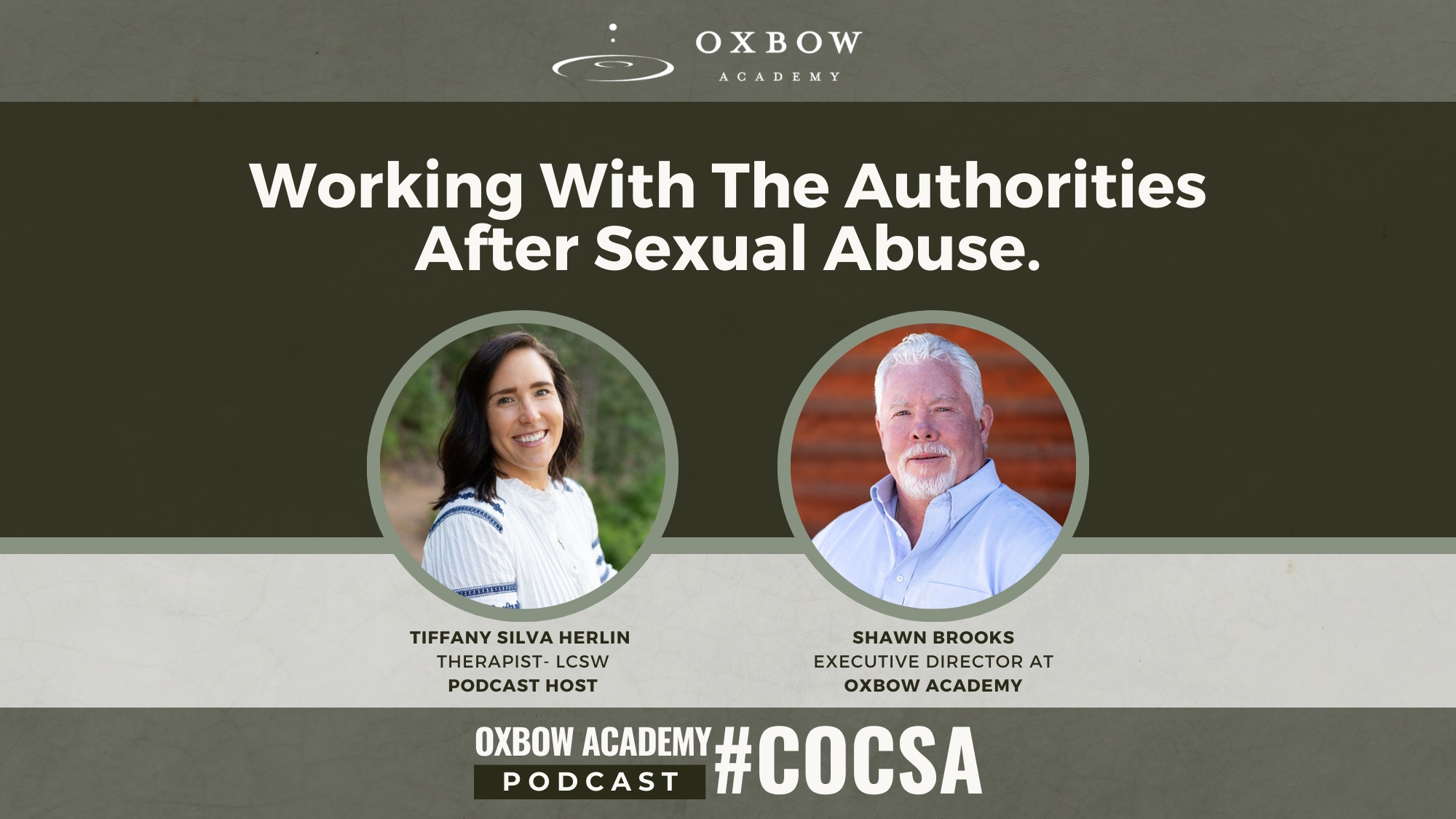
Episode 4: Sibling Sexual Abuse: Finding the Right Treatment for Your Son
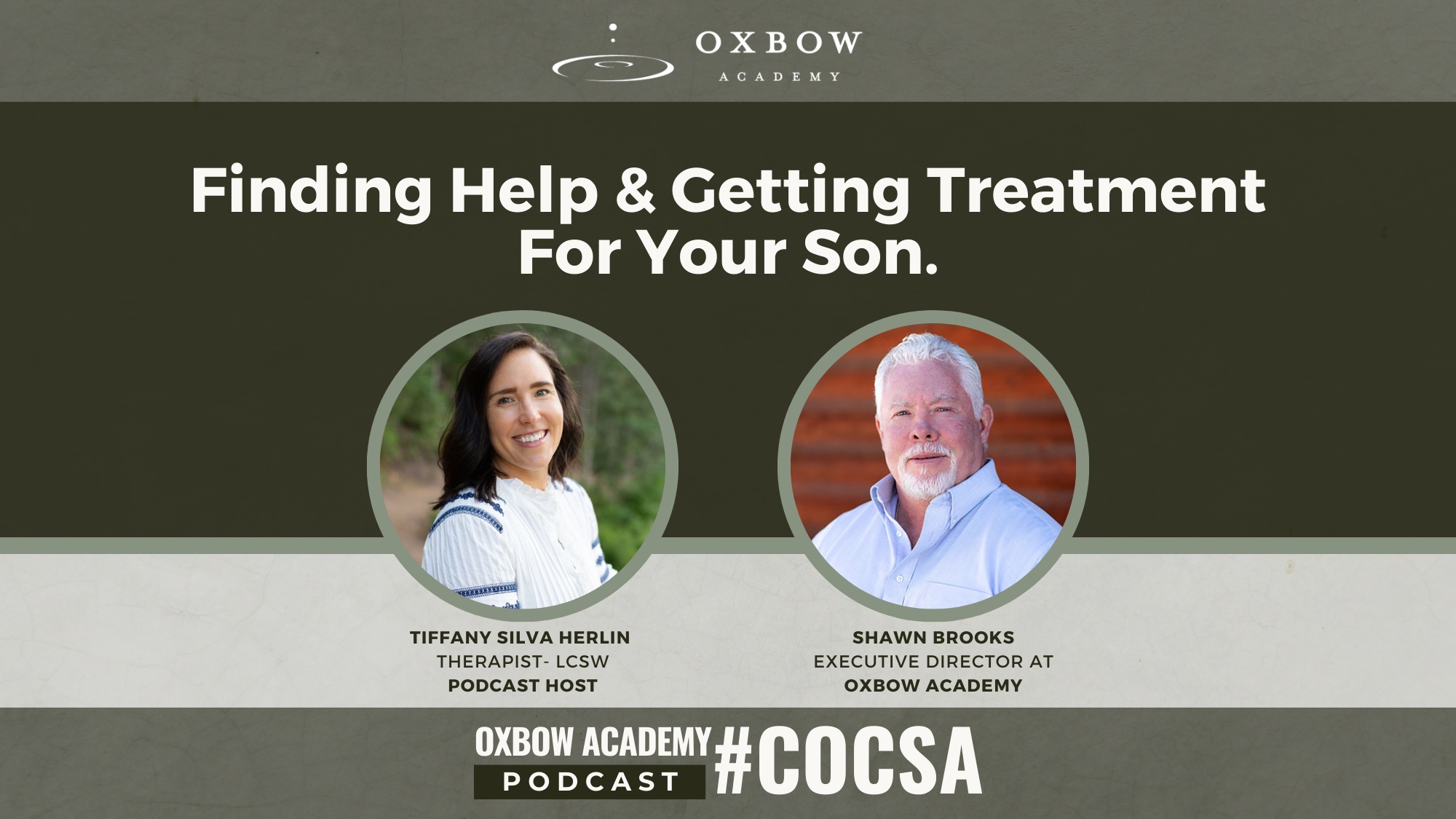
In Episode 4, “Sibling Sexual Abuse: Finding the Right Treatment for Your Son,” therapist Tiffany Silva Herlin, LCSW, and Executive Director Shawn Brooks guide parents through the process of finding the right help for a teen who has sexually acted out. They explain how to choose a qualified therapist, when outpatient therapy may not be enough, and how to tell if residential treatment is necessary. The episode outlines what to look for in a specialized program, how evaluations work, and why early, individualized treatment matters. It also emphasizes the importance of family support, victim care, and creating a safe path forward for everyone involved.
You Have Questions, We Have Answers. Your Call is Confidential.
Oxbow Academy is fully operational during the COVID-19 crisis. Contact us if you need help with treatment for sexual addiction, sexual abuse, pornography abuse and other compulsive behavior issues.
How Oxbow Academy Helps
When a teen boy has acted out sexually, it can feel impossible to know where to turn. Oxbow Academy offers a path forward—a place where healing begins not just for your son, but for your entire family.
A Specialized Program for Sexually Harmful Behaviors
Oxbow Academy provides treatment specifically for teen boys, ages 10–17, who have engaged in problematic or compulsive sexual behavior, including abuse of a sibling or peer. Boys are placed in an environment where their challenges are understood, not shamed—where honesty is encouraged and healing is possible. They live in specialized houses based on age, developmental needs, and treatment stage, ensuring focused, appropriate support throughout their journey.

Safety, Structure, and 24/7 Support
Your son will be in a safe, structured setting built for transparency and accountability. With a 1:4 staff-to-student ratio and constant supervision, you can feel confident he’s being closely supported. Residences include safety features like security cameras, motion sensors, and private areas designed with dignity and protection in mind. He’ll live among peers working through similar issues, creating space for honesty, growth, and mutual support.
Therapists Who Understand
Oxbow’s licensed therapists are specially trained in sex-specific treatment, many as Certified Sex Addiction Therapists (CSAT). They know how to ask hard questions without judgment and help your son explore what he’s done—and why. That relationship is key to breaking the cycle of shame and opening the door to change. Parents also receive support because healing the family is just as important.
Finding the Root Cause
Treatment at Oxbow goes beyond correcting behavior. A thorough evaluation helps uncover what’s beneath the surface—trauma, pornography exposure, autism, ADHD, or emotional regulation challenges. Each student receives a psychosexual evaluation, including a Sexual Behavior Risk Assessment (SBRA) and clinical polygraph, to build an effective treatment plan. These tools aren’t used to punish, but to create clarity, accountability, and a foundation for healing.

Building Empathy, Accountability, and Healthy Relationships
True healing means more than stopping harmful behavior—it means helping your son become someone he’s proud to be. At Oxbow, boys learn empathy, emotional regulation, accountability, and the importance of consent and healthy boundaries. Most importantly, they learn how to build respectful relationships with themselves, others, and you.
Families leave Oxbow not just more informed, but stronger, more connected, and filled with renewed hope.
What Treatment Looks Like at Oxbow
Evaluation to Understand Your Son’s Needs
Your family will begin with a comprehensive evaluation process, including:
- A full psychosexual assessment
- Clinical polygraph (used therapeutically)
- Your son’s full sexual disclosure
- Input from therapists, academic staff, and residential mentors
This process helps you gain clarity, uncover root causes, and determine the best path forward.

Individual, Group, and Family Therapy
Your son will participate in:
- Weekly individual therapy with sex-specific, CSAT-trained therapists
- Daily group therapy in a safe, accountable peer setting
- Weekly family therapy to strengthen communication and rebuild trust
You’ll also receive crisis support sessions and parenting tools to create change at home.
Evidence-Based Therapeutic Approaches
Your son will benefit from:
- CBT, Trauma-Focused CBT, DBT, EMDR, ACT
- CSAT model for sex-specific treatment
- Experiential therapies like equine, music, and play therapy
These approaches are tailored to your son’s needs, whether he is neurotypical or neurodiverse.
Social, Emotional, and Sexual Health Skills
Your son will build essential life tools, including:
- Emotional regulation and healthy coping strategies
- Empathy, honesty, and accountability
Age-appropriate sexual health education and consent training

Support for the Whole Family
You’ll receive:
- Weekly family therapy and regular updates
- Access to a private Parent Portal
- Invitations to multi-day parent seminars
- A 90-day aftercare program to ease the transition home
Families navigating sibling abuse also receive specialized support.
Clear, Compassionate Communication: You’ll stay informed every step of the way through transparent updates, direct access to your son’s care team, and a culture of openness and accountability.
Support for Parents and Families
You don’t have to go through this alone.
At Oxbow, healing includes the whole family. You’ll receive:
- Weekly family therapy sessions
- Regular updates from your child’s treatment team
- Access to parent seminars and education
- A private portal to track progress and stay connected
But just as your child needs support, so do you.

Learning that your child has committed sexual harm is traumatic. It’s common to feel grief, guilt, shame, fear, or confusion. And while supporting your child is important, one of the best things you can do for both of you is to seek your own therapy.
Therapy gives you a place to:
- Work through the trauma of what’s happened
- Process your own emotions and experiences
- Gain tools to rebuild trust and restore relationships
- Understand your role in the healing journey
You don’t need to have all the answers. You just need a safe space to begin.
Healing is possible for your child and you.
It’s not always easy to tell the difference between normal curiosity and behavior that signals a deeper issue, but if you’re feeling concerned, trust your instincts. Early intervention can make a profound difference in your child’s life.
You may want to seek help if you notice any of the following red flags:
-
Chronic pornography use, secrecy, or isolation
-
Risky or age-inappropriate sexual behaviors
-
Touching others without consent or violating boundaries
-
Sexually explicit talk with much younger children
-
Repeating concerning behaviors despite consequences or previous interventions
To help parents make informed decisions, Oxbow Academy offers the Sexual Addiction Screening Test (SAST), a confidential assessment with yes-or-no questions about your child’s behavior. Once completed, you'll receive a score that indicates the potential level of concern. No personal information is collected unless you request a follow-up call.
Whether you take the SAST or reach out directly, contacting Oxbow is always confidential, compassionate, and commitment-free. You'll speak with an experienced admissions counselor who will listen without judgment and help you explore the next steps.
If appropriate, your family may begin with a comprehensive 90-day evaluation designed to understand your child’s needs and determine the best treatment path, whether that’s at Oxbow or elsewhere.
Asking for help is a brave first step, and it could be the turning point your family needs to begin healing.

